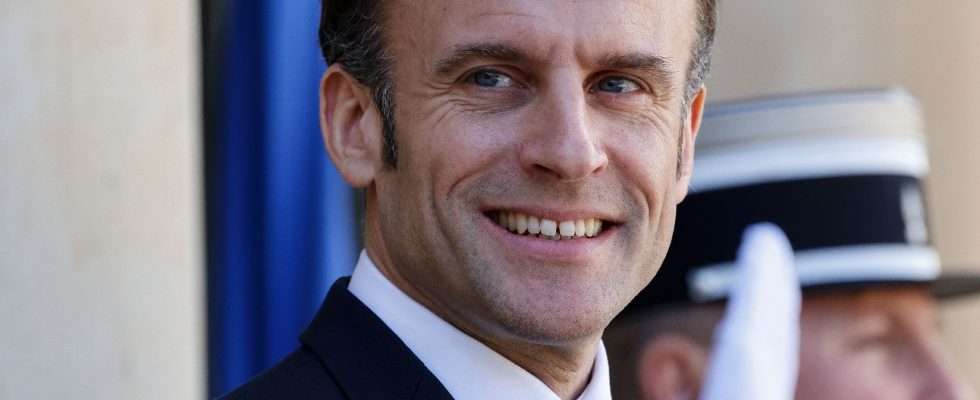Win “the battle of industrialization”. This is the objective set by Emmanuel Macron in an interview posted online on Wednesday May 10 by the weekly Challenges. The Head of State affirms that France was in 2022 “for the fourth consecutive year” the “first country in Europe in number of foreign investment decisions”. The Presidency of the Republic highlights the 300 net creations of factories in France between 2017 and 2022, to be compared with the 600 net destructions between 2008 and 2016.
In 2022, France indeed remained the European champion for foreign investment for the fourth consecutive year, according to the attractiveness barometer produced by EY and published this Thursday, May 11. This relates to announcements of installation or extension projects in 2022.
With 1,259 projects received, France is ahead of the United Kingdom (929), which maintains its number two position, and Germany (832). “France is still enjoying a catch-up effect after being neglected for years.
In addition, the pace of investments follows the improvement of its competitiveness”, explain to Echoes Marc Lhermitte, partner at EY and author of the barometer. Other good news: in 2022, 43% of investments made in France were directed towards manufacturing production, i.e. 13 points more than in 2021.
Foreign investments that create fewer jobs than elsewhere
Although the EY ranking is the main one put forward by the government, “you have to look at several indicators together to measure attractiveness”, however, told AFP Olivier Redoulès, director of studies for the Rexecode institute. The ranking does not take into account, for example, the departure of investors or the jobs created, continues the economist.
Employment represents “one of the big black spots” of the balance sheet on attractiveness, in the opinion of Marc Lhermitte. France creates an average of 33 jobs per project, while Germany and the United Kingdom generate 58 and 59 respectively. In 2022, only 38,100 jobs were provided by foreign companies, i.e. 15% less than in 2021 , according to EY. France is struggling to attract new projects: site extensions represent two thirds of investment decisions.
This ranking also says little about the most represented economic sectors. Industry has become a priority in developed countries affected by deindustrialization. But “the share of France in the industrial added value of the euro zone has continued to decline” in recent years, notes Olivier Redoulès, suggesting that the implementation of project announcements takes time. However, industrial employment stabilized after 2017, whereas it had been falling since 2001, he acknowledges.
Attractiveness also requires measuring the size of investments and all “are not equal”, recalls Vincent Vicard, economist at CEPII (Center for Prospective Studies and International Information). A Tesla mega-factory in Germany, for example, is difficult to compare to a service project in France.
The Banque de France notes a “rebound” in French attractiveness
For its part, the latest annual report on foreign direct investment from the United Nations Conference on Trade and Development (Unctad) for 2021 shows total foreign direct investment of 14 billion dollars for France, in the sixth place in the European Union behind Germany (31 billion), Sweden (27 billion) and Poland (24 billion). The scope of calculation is broader than EY and includes financial activities such as mergers and acquisitions, real estate or purchases of production units without the creation or extension of a site.
Director general of Business France, a state agency which supports foreign investors in the territory, the former Renaissance deputy Laurent Saint-Martin told AFP that “what matters is the dynamic”.
The Banque de France, which publishes statistics on foreign direct investment each year, told AFP that “there is a rebound” in French attractiveness. Investment volumes “return to levels comparable to those preceding the pandemic”, these having already been on the rise since 2015, when “investments by non-residents were significantly above the average of the last twenty years” .
“Choose France” and “green industry” law on the program
Enough to launch the annual high mass “Choose France”, the 2023 edition of which will be held on Monday May 15, and brings together a group of international business leaders at the Palace of Versailles around the President of the Republic. The objective is to announce projects in France with great fanfare.
The government has prided itself for four years on having put the country back on the map of the destinations of choice for foreign bosses, thanks to the reforms carried out on the labor market and taxation, and although the recent downgrading of the French rating by the Fitch agency has come to put a shadow on the frequently vaunted economic picture.
Emmanuel Macron, who has made the strengthening of France’s attractiveness for foreign investors one of his priorities, announced the forthcoming implementation of “hypersimplified procedures” to “halve the deadlines” for a new industrial establishment in France, in the interview given to Challenges.
This Thursday afternoon, he must specify his strategy and in particular the main axes of the “green industry” bill, by bringing together at the Elysée the actors of French industry, a bill which will be presented Tuesday in the Council of Ministers . It aims to decline the aid supposed to make it possible to compete in the face of the ambitious industrial policy of the United States. He will then go to Dunkirk, in the North, for announcements on a new factory location for electric vehicle batteries.
